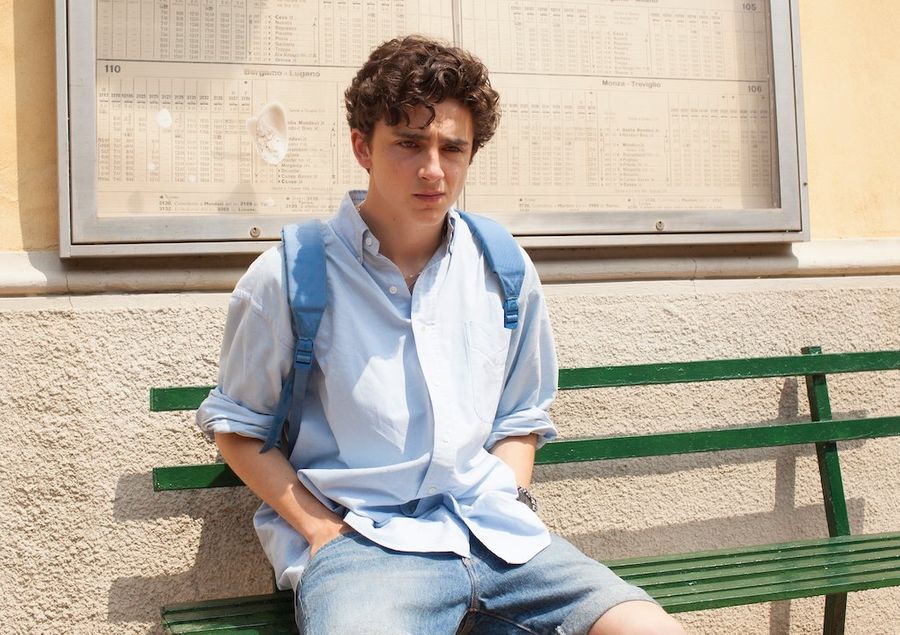“Call me by your name, and I’ll call you by mine.”
As Netflix is continuously piling its shelves with reams of original projects, it’s worth reminding ourselves that they started out by sharing some of the greatest Hollywood titles ever made. So, with Netflix Flashback, we’re looking back at some of the platform’s classic films and reminding ourselves just how great they are. Next up is a personal favourite, Call Me By Your Name.
Lambda Literary Award-winning book Call Me By Your Name saw the author Andre Aciman fall in love with his characters while writing a novel that was meant to be a simple diversion. He writes the characters with utmost care and perfection, blending in the perfect amount of intimacy and melancholy. The same is replicated by Luca Guadagnino in his 2017 eponymous film, starring the beautiful Timothee Chalamet and Armie Hammer in lead roles.
Set in a picturesque setting of northern Italy, Elio is a curious and nerdy bright-eyed 17-year old who meets the handsome and eloquent 24-year old Oliver, who immediately catches his attention. Oliver is a student assistant to Elio’s father and stays in their house, occupying a more significant part of Elio’s affection. As they get to know each other, an undeniable forbidden attraction begins to blossom, and they lose control of emotions. Frenzied nights of hurried lovemaking and passionate fervour against the landscape of a torrid summer romance is gradually met with the reality of love, uncertainty, longing and heartbreak.
While Armie Hammer revels in the role of Oliver in the film, given the recent allegations against the actor, it is impossible to view him the same way. However, without his overwhelming presence as Oliver, Chalamet’s Elio, who trembles in anticipation and attraction in the former’s presence, ceases to exist. Their characters are intrinsically entwined together with excellent understanding and empathy for one another, brimming with passion and pining. They ache to be together but are hindered by general nervousness. The film is shot in a beautiful and intimate manner with plenty of symbolism. Guadagnino employs a lot of empty pauses within the trajectory of the film’s narrative progression, perhaps mirroring Hayao Miyazaki’s usage of the same in his Studio Ghibli creations.
These pauses usually focus on the characters doing mundane things, ranging from cleaning bicycles or outing like a fish and more. It makes the setting appear more domestic and realistic, humanising the characters. The sounds that are used are often very natural and auditorily pleasing. From the tolling of the bell to the simple rustle of sheets or leaves, I almost felt guilty of encroaching on the characters’ personal space. The screen no longer exists, and I found myself seemingly occupying the same space, unabashedly deriving voyeuristic pleasure from seeing the story unfold. Befitting music, including ‘Visions of Gideon’, make it seem like a frenzied and ethereal romance in the summer of dreams that will probably disappear in a jiffy. And it certainly did!
Throughout the film, the themes of desire, love, sexual discovery and inevitable separation loom large. Elio and Oliver’s relationship is buoyed by apprehensive homoeroticism and the innate curiosity to explore each other. The peach scene, which is definitely one of the rawest and most symbolic scenes from the film, alludes to the peach being a symbol of unbridled desire — Elio and Oliver explore each other unapologetically. Their connection is complemented by the beautiful dialogues that have unbelievable depth and passion. Towards the very end, Elio and his father’s conversation moves before it focuses on a teary-eyed Elio experiencing the first pangs of heartbreak, reminiscing the wondrous summer romance that seems like a distant memory. Intellectually erotic, it is perhaps one of the greatest explorations of homoerotic love and sensuality ever since Brokeback Mountain.
The film is nothing short of poetry with touching performances and mellow aesthetics that paint a gratuitous and melancholic picture of love, heartbreak and tragedy against the lush green backdrop of an Italian landscape.
